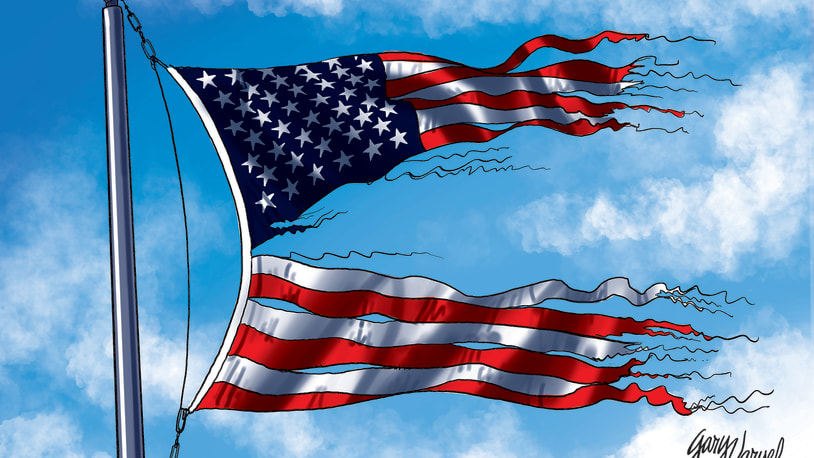But for the futility of wishful thinking, we would all have had a Merry Christmas, and the world would be much better:
If the European Union had built a strong Union after 1945 instead of numerous weak welfare states?
If European countries had helped America win the Cold War instead of sitting on the sidelines?
If Russia had built a strong democracy after 1989 instead of a thugocracy under Vladimir Putin?
If Ukraine had united under pro-Western forces after 1989 instead of corrupt competing politicians?
If America had 24 years of peaceful growth instead of 9/11 and 24 years of costly Middle East wars?
If NATO countries had stopped Putin’s aggression in Georgia and Crimea instead of appeasement?
If America had restricted China’s access to the world economy in 2000 instead of sponsoring it?
If America had expanded its base electrical energy production instead of wasting billions of dollars on intermittent green energy ideology?
If America had continued balanced budgets after 2000 instead of creating $36 trillion of debt?
If more flexible defense spending was possible instead of $1 trillion of annual interest on the debt?
If NATO had forced a Ukrainian Peace Conference early in the war instead of prolonging the war?
If European Union countries had strengthened their defenses six years ago instead of starting now?
If America had built up its defenses over the past four years instead of decreasing its capability?
If America had opposed the creation of the evil coalition of Russia, China, and Iran instead of ignoring it?
If China had not been allowed the wealth to build a massive military presence instead of threatening Taiwan?
If Zelensky had come to the White House ready to begin peace talks instead of making unacceptable security demands?
If Europeans had structured post-war security guarantees before Zelensky’s visit instead of after?
Unfortunately, real-world situations expose the futility of wishful thinking. Nothing can be the same as we would like it to be after a series of poor choices are made over many decades, and it is unrealistic and dangerous when those bad decisions guide current alternatives.
The current U.S. president has offered to attempt to broker a Peace Treaty between Ukraine and Russia based on the belief that Putin and Zelensky are willing to abide by his negotiation. If they do not, they revert to resuming a war with neither a likely winner. Ukraine will be more devastated, Russia will become poorer, and Putin’s control over his country will become more unstable. What they choose is beyond America’s determination, but America has offered Ukraine an ongoing economic relationship that will help them rebuild and thwart future Russian aggression.
Despite the heroic efforts of their brave soldiers and the sacrifices of the Ukrainian people, Ukraine cannot win a war against Russia. A long war will destroy more cities, and the country will never be the same again after a peace negotiation. For peace to happen, the pre-war status will not prevail. Putin will not just move his troops out of Ukraine and Crimea in unconditional surrender, and, unfortunately, Putin will not be brought to judgement before another trial at Nuremberg for his war crimes. Peace will come with a price!
World War II ended eighty years ago. Twenty-five years ago, the Cold War ended. European Union nations were beneficiaries of the United States of both wars. Ukraine was freed from Russian control when the Cold War was concluded. Likewise, the United States is not going to make another NATO-like security commitment to send American young people to fight and die against Russia should Putin choose to invade Ukraine in five to ten years.
The President’s program for peace in Ukraine may or may not be successful. A political cynic might suggest that many of his opponents would rather see him fail than have peace in Ukraine, for such is the way of partisan politics. Some critics claim the President is undoing America’s successful World Order following World War II. However, the geopolitical world order is dynamic, not static, as shown by the shortlist above of the changing alternative courses chosen by leaders in various nations since the American World Order was established at Bretton Woods, New Hampshire, eighty years ago in 1944.
During a similar period, by 2100, a new geopolitical world order will have evolved regardless of who is in charge. The world’s population is forecast to peak in 2084 at 10.3 billion, then begin declining. Russia’s population is to reduce from 140 million to a low of 70 million by 2100. China’s population began declining around 2018 and may decline to 525 million in 2100 from a peak of 1.4 billion. Growth in most developed nations will slow as their populations age and fewer children are born.
If well managed politically and major external conflicts are avoided, North America should be subject to steady growth prospects for the rest of the century. The annual federal deficit will be closed, the massive federal debt will be reduced, and lambs will lie down with lions!
But like ‘wishes and buts’, there is no assurance for ‘candy and nuts’ or for all to have a ‘Merry Christmas’.
TW3
John Whitmore Jenkins
March 6, 2025




